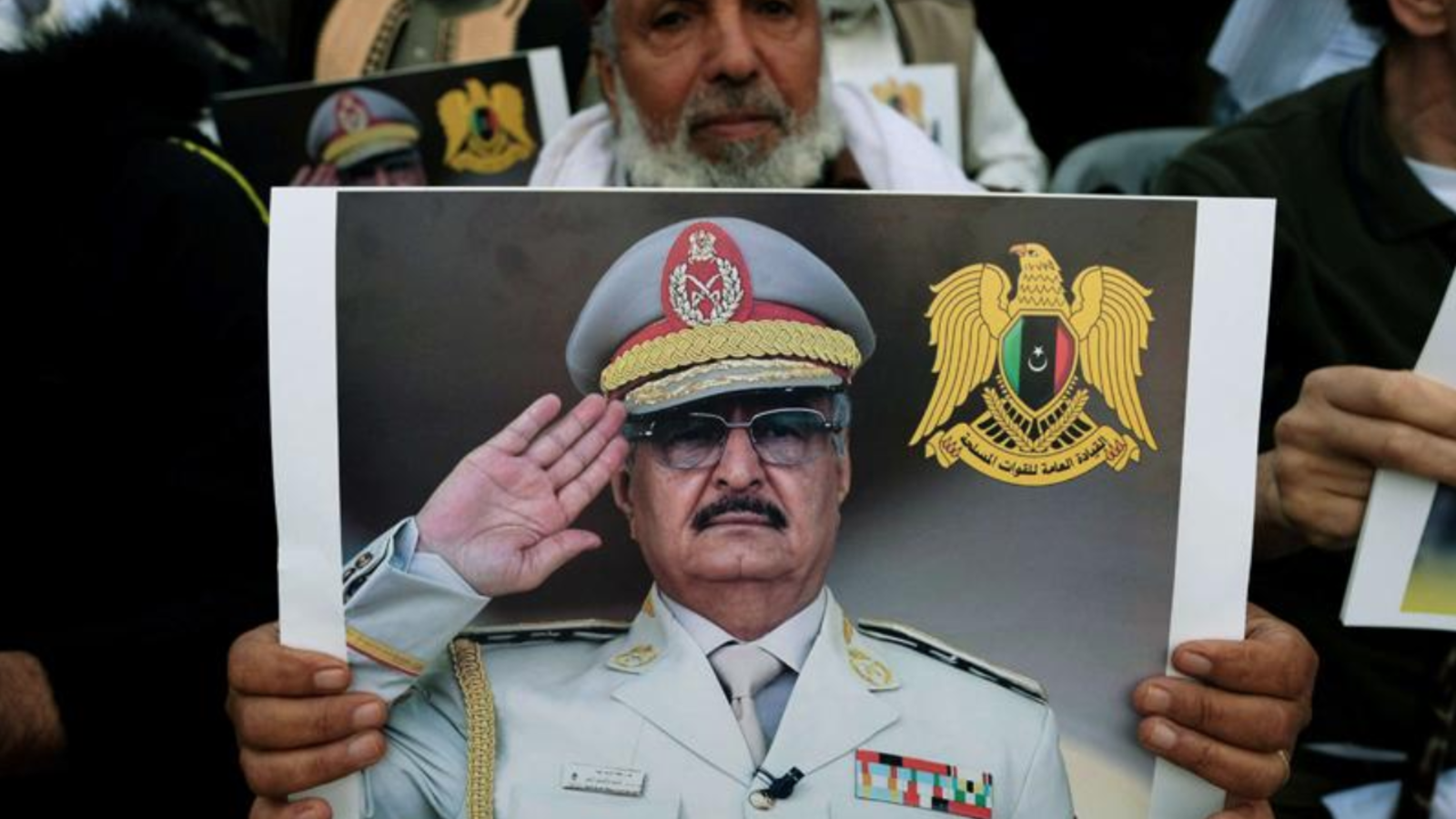Italy Watches Impotently as Russia and Turkey Determine Libya’s Future
This article was published on Albawaba – January 19th, 2020

In November 2019 pro-Haftar forces claimed to have shot down an Italian drone /AFP
Libya’s historic colonial country and overseas neighbor – Italy – is letting Russia and Turkey determine its future.
The war-torn North African country has been close to reaching a ceasefire deal organized by both Russia, which backs the eastern general Khalifa Haftar, and Turkey, which supports the rival Tripoli government of the Government of National Accord (GNA). However, hours after the ceasefire had become official fighting erupted again in Libya’s capital.
On Monday, Haftar left Moscow refusing to sign a ceasefire deal, but thanking his “dear friend” Vladimir Putin for his efforts in ending the Libyan conflict. The fighting in Libya escalated in April after Haftar announced an offensive to seize the city of Tripoli from the UN-recognized GNA.
On Monday, Haftar left Moscow refusing to sign a ceasefire deal, but thanking his “dear friend” Vladimir Putin for his efforts in ending the Libyan conflict.
While Italy has major stakes in Libya, from its historic ties, its energy investments and the ongoing migrant crisis reaching its shores, the current Italian government has shown little to no leadership in solving the crisis.
Italy had supported the government of Tripoli since the start of Libya’s civil war, sending financial and logistical support to pay militias to stop the smuggling business. The migrant crisis from Libya was causing both security and political concerns for Italy’s government at the time, as it understood the surge in anti-immigration parties would lead to its displacement from power.
However, Italy failed to provide any military assistance to the Tripoli government or assert itself as a central ally. Nor was Italy capable of bringing the two sides together to secure a power-sharing agreement. As a result, Turkey took its place by offering military support to the GNA and organizing a ceasefire agreement with Russia.
Neither was Italy capable of bringing the two sides together to secure a power-sharing agreement. As a result, Turkey took its place by offering bold military support to the GNA and organizing a ceasefire agreement with Russia.
A source from Italy’s ministry of foreign affairs who asked for anonymity for professional purposes, says Italy is clueless on what it should do in Libya.
“We have no Deus ex machina, we have no way to safeguard our national interests, we went from being the biggest player up to 2011 to ground zero.”
The source says Italy has excluded military options, but that he believes this will be a big mistake. “The only solution is a military one; France gave military support to Haftar’s forces that Italy did not give to the forces in Tripoli. Turkey now gave that military support to Tripoli instead.”
“We have no Deus ex machina, we have no way to safeguard our national interests, we went from being the biggest player up to 2011 to ground zero.”
Turkey’s intervention comes after signing a memorandum in November with Libya’s Tripoli government outlining their maritime borders in the Eastern Mediterranean for future energy investments. The new ownership of waters triggered backlash from Greece, which says the deal violates its maritime territory. Greece had already delineated its zones together with Cyprus, Israel, Egypt, Jordan, and Italy for energy extraction.
Italy now finds itself in the odd position of opposing Turkey’s deal with the Tripoli government in Libya, the same government it has supported to this day in Libya’s civil war. A possible option to switch sides and support Haftar in order to protect its future energy investments with Greece would be equally difficult.
“Italy cannot support Haftar either now – it is too late – Haftar knows he owes his victories to Russia, France, the UAE and Egypt, and Italy has always been in his way by supporting its rival militias, ever since the war broke out.”
Italy’s lack of helpful leadership in supporting the GNA or in finding a peaceful solution between the two sides since the inception of the civil war in Libya triggered more instability, and a loss of credibility in the eyes of Libyans.
Italy cannot support Haftar either now – it is too late – Haftar knows he owes his victories to Russia, France, the UAE and Egypt
Even in terms of its energy interests in Libya with the Italian multinational oil and gas company Eni, Italy’s current leadership has failed to secure any business advantage. In the meantime, other foreign nations, many far from Libya, like Turkey and Russia, have asserted their interests in the ongoing Libyan conflict.
Without negotiating a solution to the civil war or asserting its support for one side of the conflict, Italy watches the fate of a neighboring country unfold impotently as foreign nations take its place.


